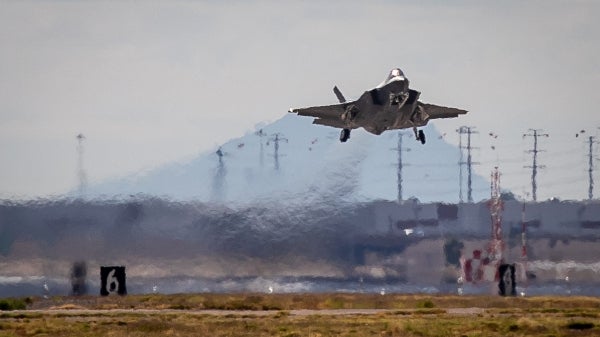ASU researchers awarded DARPA contract to develop framework for measuring ethical readiness of autonomous systems

iStock photo
With autonomous systems advancing rapidly in both military and civilian fields, how do we ensure these technologies perform ethically in high-stakes environments?
Academics from Arizona State University and the University of New South Wales (UNSW) have been awarded a multiyear contract by DARPA to pioneer new research in military ethics and autonomous technologies.
This contract was granted through DARPA’s Autonomy Standards and Ideals with Military Operational Values (ASIMOV) program, which aims to create benchmarks to assess how well autonomous systems, including those employing artificial intelligence (AI), can handle complex, ethically sensitive situations in military settings.
As autonomous technologies evolve, ASIMOV seeks to develop a comprehensive framework that evaluates the ethical readiness, in addition to the technical ability, of these systems to operate in real-world military scenarios.
The research project, titled "Adversarial Generative Ethics for Autonomous Weapon Systems," will be led by Professor Deane-Peter Baker from the School of Humanities and Social Sciences at UNSW Canberra.
Baker will guide a team of experts from UNSW Canberra’s School of Systems and Computing and UNSW Sydney’s law and justice faculty, as well as faculty in ASU’s Center for Human, Artificial Intelligence, and Robot Teaming (CHART) who are members of ASU’s Department of Psychology; School for Engineering of Matter, Transport and Energy; Polytechnic School; School of Life Sciences; and School of Computing and Augmented Intelligence.
“To date, international engagement with the question of the ethical use of autonomous weapons has been at a level of generality. This project marks a sea change in seeking to establish a way of evaluating the specific ethical readiness of particular systems for the battlefield," Baker said. "I am honored to be working alongside an outstanding team of interdisciplinary experts at UNSW and ASU as we seek to make real progress on this vital question."
This collaborative effort aims to break new ground by establishing a quantitative approach to measuring the ethical difficulty of future autonomy use cases and the ability of autonomous systems to perform in those use cases within the context of military operational values.
Supported by Security & Defence PLuS, a unique trilateral partnership among UNSW, ASU and King’s College London, this project represents a commitment to advancing shared security and defense priorities for Australia, the United Kingdom and the United States, as well as their allies and defense partners worldwide.
More Local, national and global affairs

Environmental writer, ER doctor address violence, climate change, more at sold-out ASU event
“The difficulty of understanding the consequences of heat is amplified by conventional notions of what it means to be hot. In pop culture, hot is sexy, hot is cool, hot is new…” That excerpt was…

Thunderbird at ASU, AUK student appointed as Ukraine’s deputy minister of education and science
Nadiia Kuzmychova, a student in the Master of Leadership and Management (MLM) program at Thunderbird School of Global Management at Arizona State University and the American University…

ASU creates pathways to public service careers for military students
The School of Public Affairs at Arizona State University is making careers in public service easier to access for military students.Next year, the school will start holding graduate courses on site…